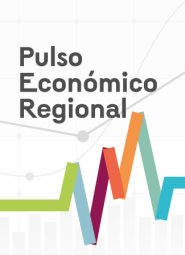Banco de la Republica Keeps the Benchmark Interest Rate Unchanged
In their session today, the Board of Directors of the Banco de la Republica decided to keep the benchmark interest rate unchanged. As a result, the base rate for the liquidity-expansion auctions will remain at 3%. The decision was made with the following in mind:
In November, annual inflation was at 2.59%, a figure that is higher than what was seen a month ago and better than what the technical team at the Banco de la Republica and the market expected. This upswing in inflation, which is primarily due to the rise in food prices as a result of the climate, will be transitory in character.
The indicators for core inflation (that which excludes the prices for the most volatile products such as food) rose slightly and remain close to or below the mid-point of the target range. Inflation expectations showed a similar trend.
The Colombian economy continues to be stimulated by the strength of domestic demand and favorable terms of trade. The high confidence levels, a recovering labor market, the strength of credit, and real interest rates that are at historically low levels have had a favorable impact on the recovery of household consumption and investment. In spite of this an indicator for public works projects that is significantly lower than expected as well as the climate could moderate economic activity data to a lower rate than the 4.5% anticipated last month.
Over the last month, the estimates for worldwide growth in 2010 did not change significantly. Nevertheless, on average, the market analysts and some multilateral entities are still predicting a slowdown in the global economy in 2011. Furthermore, the perception of risk in Europe remains at high levels and has affected the performance of the markets by depreciating their currencies with respect to the dollar.
The international prices for the commodities that are the most relevant to Colombia are still at historically high levels. Meanwhile, the Colombian stock market, which had dropped partly because of increase in the perception of global risk, has returned to its rising trend.
Since last September 15, the Colombian peso has depreciated compared to the dollar in a context of foreign exchange intervention through the daily purchases of at least US$20 million, the measures taken by the national government and the upswing in the perception of international risk.
The Board of directors believes that the posture of monetary policy has contributed to the growth of the economy without jeopardizing the possibility of achieving the inflation target.
The Board will continue to closely monitor the international situation, the trend and projections of inflation, growth, the performance of the market in assets and reiterates that monetary policy will depend on new information that is available.
Bogota































































